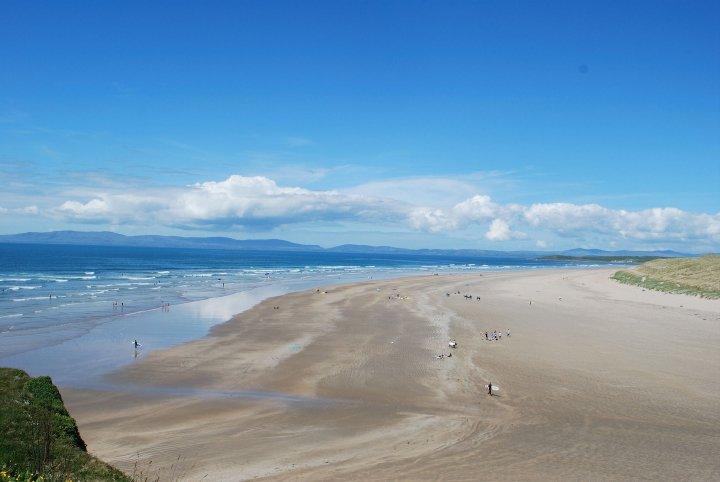The latest litter survey by business group Irish Business Against Litter (IBAL) has found Bundoran beach improving from ‘littered’ 12 months ago to ‘moderately littered’, alongside Killybegs harbour.
While the majority of our towns are clean, our beaches and waterways are not, according to the study. Of the 42 areas surveyed across the country, only 1 in 6 were deemed ‘clean’, while 14% were classed as ‘littered’ or ‘heavily littered’.
Beaches, harbours, rivers and their immediate environs were monitored by the Environmental Education Unit of An Taisce over the course of the summer.
The An Taisce report for Bundoran stated “Much of the area surveyed in Bundoran presented well and was generally in good order with regard to litter. However, cigarette butts were pronounced and there was evidence of drinking with alcohol cans and bottles.
‘Vote with Your Butt’ facility at the Life Guard Hut was being used. Marine based litter was not an issue at Bundoran. A broken and rusty litter bin close to the Tourist Office created a poor impression but the remainder of the bins were freshly presented.”
The An Taisce report for Killybegs stated: “Killybegs wasn’t too bad with regard to land based regular litter but a feature along the pavement was litter left in the base of the street bins which had been removed – with a gust of wind these items will quickly blow about the ground and ultimately into the water.
“Marine based litter items in the water included rope stuck in the rocks and fish boxes, mostly long-lie items. Some street cones were also to be found in the water.”
The need for action around plastic pollution in the marine and aquatic environment is now well established. Worldwide, billions of kilos of disgarded plastic can be found in swirling convergences in the oceans, making up about 40 percent of the world’s ocean surfaces.
Recent studies have also highlighted the potential impact of marine litter on our climate, as plastic consumed by plankton may impair a key role of the ocean in trapping CO2 from our atmosphere.
“Litter as we know it has acquired a wholly new importance for society,” says Mr Horgan. “This is especially true for an island like Ireland, where litter can readily wind its way to the sea irrespective of where it is dropped. When it comes to marine litter the sea starts at every household, street, green space and workplace.”
The most common forms of litter found by the assessors were food wrappers, plastic bottles, cans and cigarette butts. New research has shown even a single butt can contaminate up to 200 litres of ground water. Fishing industry-related litter (e.g. nets, ropes, strapping bands, floats, etc.) occurred throughout almost all marine sites.
Irish Business Against Litter has been conducting surveys of towns and cities since 2002 and has witnessed a spectacular rise in cleanliness over that period. This is the second year that the study has extended to coastal areas and waterways.
“We have seen significant improvement year on year but will keep putting pressure on local authorities and others to give priority to these areas and support the work of the thousands of volunteers cleaning litter from our coastlines. There is no reason why they should not be as clean as our towns.”
Tags:







